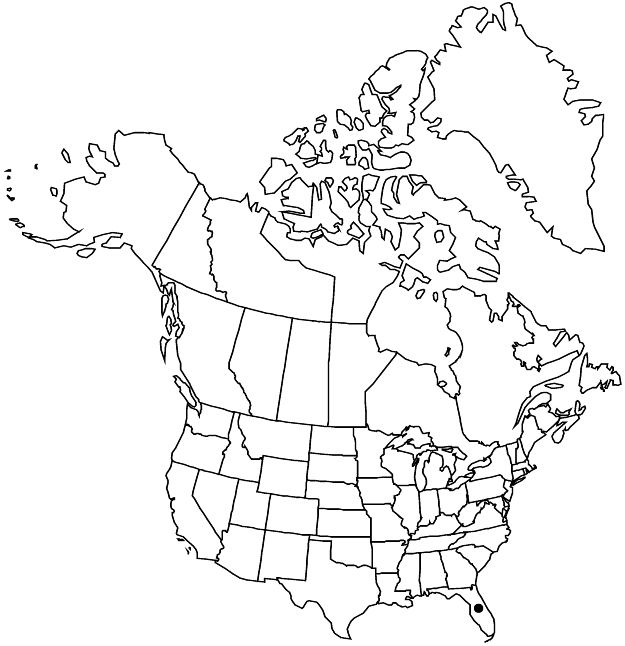Difference between revisions of "Sida urens"
Syst. Nat. ed. 10: 1145. 1759.
FNA>Volume Importer |
imported>Volume Importer |
||
| Line 32: | Line 32: | ||
|elevation=0–10 m | |elevation=0–10 m | ||
|distribution=Fla.;Mexico;West Indies;Central America;South America;introduced also in Africa;Indian Ocean Islands (Madagascar);Pacific Islands (Hawaii). | |distribution=Fla.;Mexico;West Indies;Central America;South America;introduced also in Africa;Indian Ocean Islands (Madagascar);Pacific Islands (Hawaii). | ||
| + | |introduced=true | ||
|discussion=<p><i>Sida urens</i> was found only recently (2008) in Broward County. The species is easily distinguished by its long-acuminate beaked flower buds, setose calyx, cordate-acuminate leaves, and tendency to have long, reclining stems. It is rather common in tropical regions.</p> | |discussion=<p><i>Sida urens</i> was found only recently (2008) in Broward County. The species is easily distinguished by its long-acuminate beaked flower buds, setose calyx, cordate-acuminate leaves, and tendency to have long, reclining stems. It is rather common in tropical regions.</p> | ||
|tables= | |tables= | ||
| Line 56: | Line 57: | ||
|publication year=1759 | |publication year=1759 | ||
|special status=Introduced | |special status=Introduced | ||
| − | |source xml=https:// | + | |source xml=https://bibilujan@bitbucket.org/aafc-mbb/fna-data-curation.git/src/bb6b7e3a7de7d3b7888a1ad48c7fd8f5c722d8d6/coarse_grained_fna_xml/V6/V6_586.xml |
|subfamily=Malvaceae subfam. Malvoideae | |subfamily=Malvaceae subfam. Malvoideae | ||
|genus=Sida | |genus=Sida | ||
Revision as of 00:42, 28 May 2020
Herbs or subshrubs, perennial, often scandent, 0.5–1.5 m. Stems erect or reclining, with simple 1.5–3 mm hairs mixed with shorter stellate hairs, rarely only stellate-hairy. Leaves: stipules free from petiole, 1-veined, subulate, 2–5 mm; petiole 10–30 mm, 1/4–1/2 (to nearly equaling) blade length, pubescence like stem; blade ovate to triangular, 4–9 cm, 1.5–2 times longer than wide, base cordate, margins crenate-serrate or coarsely serrate to base, apex acuminate or attenuate, surfaces sparsely pubescent, abaxial surface stellate-pubescent, adaxial surface stellate-pubescent or with simple, often antrorsely-oriented hairs. Inflorescences axillary, dense, subsessile, 3–8- glabrous or nearly so; mericarps 5, 3 × 1.5 mm, laterally faintly striate to smooth, apex muticous. 2n = 32.
Phenology: Flowering year-round.
Habitat: Disturbed sites
Elevation: 0–10 m
Distribution

Introduced; Fla., Mexico, West Indies, Central America, South America, introduced also in Africa, Indian Ocean Islands (Madagascar), Pacific Islands (Hawaii).
Discussion
Sida urens was found only recently (2008) in Broward County. The species is easily distinguished by its long-acuminate beaked flower buds, setose calyx, cordate-acuminate leaves, and tendency to have long, reclining stems. It is rather common in tropical regions.
Selected References
None.